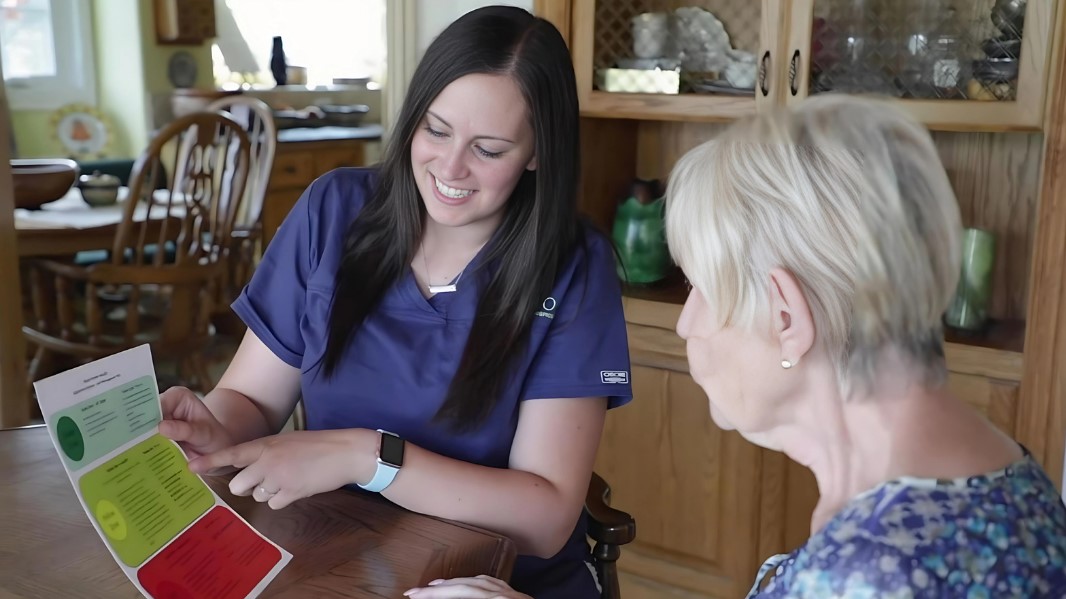Health insurance companies are integral stakeholders in the healthcare ecosystem, playing a critical role in determining the scope, quality, and accessibility of medical services. One of the less commonly understood practices of health insurance providers is the conduct of home visits.
This article sheds light on why health insurance companies undertake home visits, exploring the underlying reasons, implications, and outcomes of such initiatives. In this exploration, we delve into the nuances of this practice, aiming to provide a comprehensive understanding of its significance in the healthcare landscape.
Key Takeaways
- Preventive Care and Early Detection: Home visits enable early detection of diseases, leading to timely interventions that can significantly lower healthcare costs and improve long-term health outcomes.
- Verification and Personalized Care: Through home visits, insurers can verify claims to combat fraud and develop personalized care plans based on unique insights into the policyholder’s health and lifestyle needs.
- Engagement, Education, and Cost Efficiency: These visits enhance patient engagement and education on health management, while also contributing to cost savings by optimizing healthcare resource use and preventing unnecessary hospital admissions.
Basis of Home Visits
Home visits by health insurance companies are designed to assess, verify, and improve the health outcomes of their clients. These visits are part of a broader strategy to manage healthcare costs and ensure that policyholders receive appropriate, timely, and cost-effective healthcare services. Get a quote today!
The rationale behind home visits is multifaceted, encompassing preventive care, assessment of healthcare needs, verification of claims, and personalized care planning, among other objectives
Preventive Care and Early Detection
A cornerstone of the rationale for home visits by health insurance companies is the emphasis on preventive care and early detection of diseases. Through direct engagement with policyholders in their living environments, healthcare professionals can identify health risks and conditions at an early stage.
This proactive approach allows for timely intervention, potentially averting more severe health issues down the line. Early detection of diseases such as diabetes, hypertension, and heart conditions can significantly reduce the long-term healthcare costs for the insurance companies and policyholders.
| Aspect | Description |
| Focus Area | Preventive Care and Early Detection |
| Rationale | The emphasis is on identifying health risks and conditions early on, through direct engagement with policyholders in their living environments. |
| Method | Healthcare professionals visit policyholders at home to assess health risks and conditions. |
| Benefits of Early Detection | Early identification of diseases such as diabetes, hypertension, and heart conditions. |
| Outcome | Timely intervention can avert more severe health issues, significantly reducing long-term healthcare costs for both insurance companies and policyholders. |
Assessment of Healthcare Needs
Home visits enable health insurance companies to conduct a thorough assessment of a policyholder’s healthcare needs. This assessment includes evaluating the living conditions, lifestyle factors, and existing health issues of individuals.
Such evaluations are crucial in designing personalized care plans that address the specific needs of policyholders. By understanding the unique health challenges and requirements of their clients, insurance companies can facilitate tailored interventions, thereby enhancing the efficacy of healthcare services.
Verification of Claims
Another critical aspect of home visits is the verification of claims. Insurance fraud is a significant concern in the healthcare industry, leading to inflated costs and inefficiencies.
Home visits allow insurance companies to verify the authenticity of claims filed by policyholders, ensuring that the provided medical services are necessary and consistent with the diagnosed conditions. This verification process helps in mitigating fraudulent activities, ultimately contributing to the sustainability of healthcare systems.
Personalized Care Planning
Home visits offer a unique opportunity for personalized care planning. By interacting directly with policyholders in their home environment, healthcare professionals can gain insights into the daily challenges faced by individuals, including barriers to accessing healthcare services.
This intimate understanding facilitates the development of customized care plans that are more aligned with the individual’s specific circumstances, promoting better health outcomes and enhancing the overall quality of care.
Enhancing Patient Engagement and Education
A significant benefit of home visits is the enhancement of patient engagement and education.
These interactions provide a platform for healthcare professionals to educate policyholders about managing their health conditions, medication adherence, Medical prescriptions and lifestyle modifications.
Increased patient engagement through education and awareness can lead to better health outcomes, as informed individuals are more likely to take proactive steps in managing their health.
Cost Management and Efficiency
The practice of home visits is also driven by the imperative of cost management and efficiency in the healthcare sector. By identifying health issues early, verifying claims, and fostering personalized care, health insurance companies can achieve significant cost savings.
These savings stem from reduced hospital admissions, lower incidence of chronic diseases, and minimized instances of healthcare fraud. Moreover, efficient allocation of healthcare resources ensures that policyholders receive the right care at the right time, further optimizing the utilization of healthcare services.
FAQs
Some insurance policies may allow for policyholders to request a home visit, especially in cases where they need assistance with complex health conditions, post-hospitalization care, or when they have mobility issues that make office visits challenging.
It’s important for policyholders to review their insurance plan details or contact their insurer directly to understand the specifics of their policy regarding home visits.
However, policies may vary, and it’s advisable for policyholders to check with their insurance provider for specific details regarding the cost implications of home visits.
During home visits, healthcare professionals employed or contracted by the insurance companies are required to adhere to these privacy laws, ensuring that any health information collected or discussed is protected and confidential.
These professionals are selected based on their expertise in providing clinical assessments, patient education, and care coordination, ensuring they can offer valuable insights and support to policyholders during the visit.
During the visit, the healthcare professional may conduct a health assessment, review medications, discuss any health concerns, provide education on managing health conditions, and develop or update a personalized care plan. The visit is designed to be a comprehensive evaluation to support the policyholder’s health and well-being.
This collaboration ensures that all parties involved in the policyholder’s care are informed about the individual’s health status, needs, and any recommendations made during the home visit.
Final Words
The practice of home visits by health insurance companies is a multifaceted strategy aimed at improving health outcomes, enhancing the quality of care, and ensuring the sustainability of healthcare systems.
Through preventive care, assessment of healthcare needs, verification of claims, and personalized care planning, these visits serve as a critical tool in managing healthcare costs and enhancing patient engagement.
As the healthcare landscape continues to evolve, the role of home visits in fostering a more proactive, personalized, and efficient healthcare system is likely to grow, underscoring the importance of understanding and supporting this practice.
Related Posts:
- Understanding How HGH Influences Mental Well-Being:…
- How to Give Yourself a Break in 2024 - Top 10 Things to Do!
- Treatment for ADHD Without Insurance - Best Tips for 2024
- Magnesium vs Melatonin: Which Is Better and Why Are…
- Why Don’t Doctors Prescribe Probiotics With…
- What is Marine Collagen and Why You Should Consider…

















